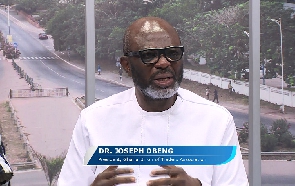Regional News of Thursday, 28 July 2011
Source: GNA
NGOs appeals to Government to implement education policy
Tamale, July 28, GNA – An alliance of NGOs operating in the Northern Region in the area of education, has appealed to Government to as a matter of urgency implement the policy on Complementary Basic Education (CBE) initiated in 2006 to improve education in the country.
A statement issued in Tamale on Thursday and jointly signed by members of the alliance operating in the Region, and copied to the GNA, expressed worry that there was an extreme slow process of rolling out the CBE policy.
“It is the position of the CBE Alliance that the draft CBE policy be finalized and approved immediately, and that the draft Strategies and Work Programme, as well as Operational Plan be set in motion for a nationwide roll-out of the policy by the Basic Education Division of the GES”, it said.
“The Alliance wishes to register evidence of Government’s commitment to achieving Education for All by the year 2015 as envisioned in the ESP and further urges Government to make that pledge real by implementing the CBE policy from September 2011”, it stressed.
Members of the Alliance who signed the statement were the Ghana National Education Campaign Coalition (GNECC), the Northern Network for Education Development (NNED), School for Life (SfL), the Ghana Institute of Linguistics, Literacy and Bible Translations (GILLBT), the Afram Plains Development Organization (APDO), Programmatic Approach Ghana Alliance (PAGA) and Ibis West Africa.
The Alliance said, “Ghana needs to implement a policy on Complementary Basic Education (CBE) to avoid missing the deadline for achieving Universal Primary Education and Education for All by the year 2015, but there appears to be an extremely slow process of rolling out the CBE policy.”
The statement said the drafting process of a Complementary Basic Education (CBE) policy was initiated in 2006 by the Basic Education Division of GES upon available evidence that about 25% of school-age children in Ghana were still out-of-school but unfortunately the existence of a draft policy with Strategies and an Annual Operational Plan-2010-2012 was yet to be translated into action.
The statement said there was no need for the country to wait after missing the target for Gender Parity in Basic Education in 2005, since the situation was not comfortable for the country to miss the second major target of EfA and MDG goals 1 &2 in 2015.
According to the Alliance, if policy makers were indifferent in working to achieve these Global and National targets, it was not worth the effort subscribing to the targets, especially when Ghana had been signed onto the Education Fast Track Initiative of the World Bank because of her commitment to Education for all.
The statement said the CBE Alliance understood the aim of the Complementary Basic Education Policy to be geared towards providing radical accelerated access to education using alternative strategies that ensured equity in the delivery of education to out-of-school children who had been denied access to basic education due to their geographical location and social circumstances.
According to the Alliance the number of out-of-school children in Ghana was variously stated to be between 600,000 and 860,000 and that the lack of accurate data on the sheer numbers of out-of-school children required a multi-stakeholder approach in the conduction of a nationwide survey and harmonization of data on out-of-school children in Ghana.
The Alliance said it possessed the requisite human resource and with a membership that was geographically well spread-out enough to support map-out where out-of-school children are located and what interventions are required to integrate them into formal school.
“The CBE Alliance is hereby making a passionate appeal to the Ministry of Education (MoE) to commence immediate steps to approving the CBE policy and causing its start-up by the GES (Basic Education Division) in consultation with technically competent CSOs, the private sector, communities and individuals”, it said.
It said the CBE policy was a social protection policy relevant for the achievement of most of the MDGs, eradicate extreme poverty and hunger, achieve universal primary education, promote gender equality and empower women and combat HIV/AIDS, malaria and other diseases.
The CBE Alliance recommended that as the state mandated institution responsible for implementing Government’s policy on education, the District Education Offices of GES should be used for CBE policy implementation.
It also suggested that funding for the component of CBE activities ranging from teacher recruitment, provision of basic Teaching and Learning Materials, monitoring and supervision should be channelled through the District Education Offices (DEOs). This approach would secure GES’ ownership of CBE and of their role of integrating CBE learners into mainstream GES schools.
The CBE policy has a strategic goal of providing equitable access to good quality child-friendly universal basic education, by improving opportunities for all children in the first cycle of education at Kindergarten, Primary and Junior High levels.










